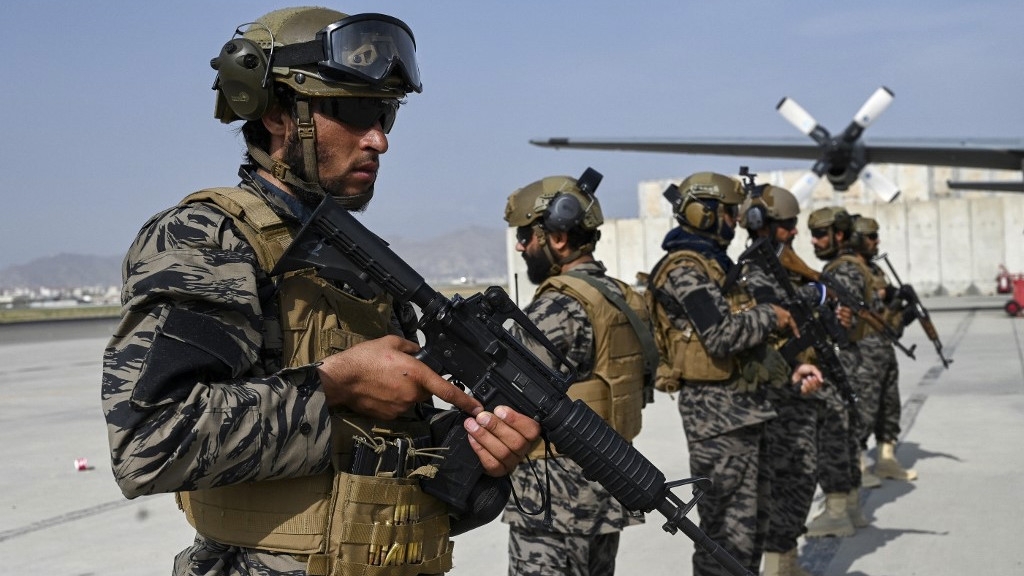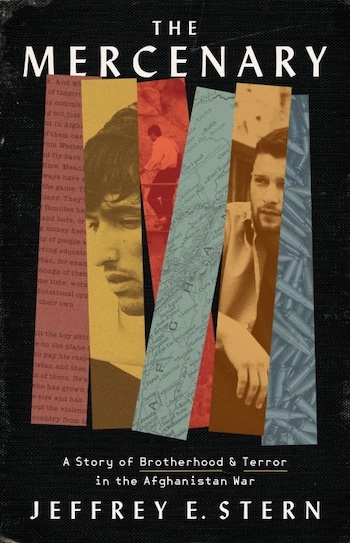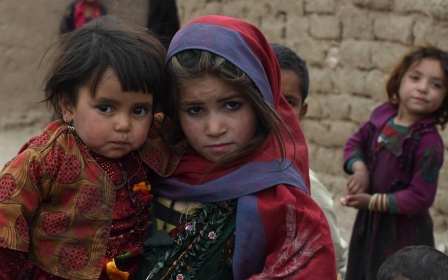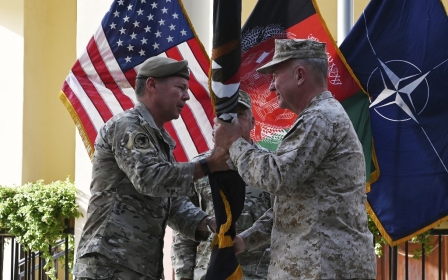The Mercenary: A cautionary tale of journalism and trauma in the Afghanistan war

There has been much debate in recent years over the reliance of foreign correspondents on local producers, controversially called “fixers”, as awareness grows over the inadequacy of this term.
The relationship generally tends to be one-way. Reporters from the Global North travel to the Global South and rely extensively on local producers to do the heavy lifting: finding interview subjects, connecting with official sources, translating quotes, and providing safe transportation to dangerous sites.
Without such assistance, few western journalists would be able to deliver much of value from these deployments. And once they’ve wrung a series of stories from a conflict-torn country, many don’t stick around; they pack up when the news cycle moves on, or when their political leaders decide to wage war elsewhere. The local producers - often unsung, with no public-facing credit - are left alone to navigate the potential fallout.
Author Jeffrey Stern tackles this power imbalance head-on in his new book, The Mercenary, a gripping account of the terror and chaos of the Afghanistan war, right up until the ill-planned and disastrous American withdrawal in August 2021. His story is a cautionary tale for all western journalists, especially those reporting from conflict zones.
Stern entered Afghanistan as a freelancer, hoping to make a name for himself by covering one of the seminal quagmires of the 21st century. He travelled to Kabul with no institutional support, no guarantees that his pitches would be accepted, and the prospect of only meagre pay if his stories went to print. He took a job at a local university to pay the bills.
New MEE newsletter: Jerusalem Dispatch
Sign up to get the latest insights and analysis on Israel-Palestine, alongside Turkey Unpacked and other MEE newsletters
From the outset of his book, Stern acknowledges the perception gap that existed at the time between himself and Aimal, a local taxi driver who swiftly became his go-to source whenever a bomb exploded. Aimal found stories for Stern, while serving as his driver, translator and protector. Focused on his work, Stern was seemingly unaware of Aimal’s growing trauma, as they chased an endless cascade of violence and death.
“Only when I was safe, he’d set about finding someone to tell us what happened,” Stern writes. “I followed him around bomb sites and shootouts, trying to gin up artful ways to describe ghastly things and thumbing them into my phone.”
'Museum of other people's pain'
As Stern begins building his career as a professional journalist, Aimal is pulled deeper into the conflict gripping his homeland. In one instance, while reporting on a bus explosion, he takes the author to a hospital and a morgue. With the benefit of retrospect, Stern admits: “I was exploring a museum of other people’s pain, it was all on display for me, and I was hoping to get credit for documenting it.”
After arriving in the morgue, Stern watches Aimal slip out of the room, and recalls thinking his driver was “inured” to the horrors of war. But about a quarter of the way into the book, the narrative switches, and we begin to hear Aimal’s perspective.
Consumed by the need to protect “his foreigner”, who is also becoming his friend, Aimal has no choice but to hurry to scenes of carnage that he cannot easily forget.
At the morgue, upon seeing a fragment of a victim’s body, Aimal feels the image “lodging in his brain and kicking him back, a toxin spreading through his body”. He leaves the room, stunned and horrified, wanting to run away but knowing he must remain until Stern’s work is complete.
In another case, while Stern is out of the country, Aimal witnesses a reporter being shot and killed by a sniper: “She joined the ghosts who remained with [Aimal] always … The scene, the landscape of that moment, carved into a corner of his memory where it could sit and haunt him.”
Although Stern did not fully grasp it at the time, Aimal was deeply affected by the violence in his country. With unflinching self-awareness, Stern unpacks the trauma that he and others have inadvertently doled out - sometimes through ignorance, or the ruthless pursuit of a story - to people who are living through war every day, and cannot look away.
Catastrophic US withdrawal
As Stern’s narrative unfolds, he details the misguided American push for elections in Afghanistan, followed by the collapse of US operations in the country. While Aimal becomes increasingly entangled with arms dealers and warlords, Stern, who by this point has returned home to the US, continues to pursue his career as a journalist and author.
Aimal ultimately flees to Canada to seek asylum. From afar, the two men’s lives converge again during the catastrophic US withdrawal and the Taliban’s resurgence in Kabul. Amid appalling scenes of desperate Afghans clinging to the undercarriage of departing planes, both Stern and Aimal receive a constant stream of messages from frantic friends and colleagues stuck in the country.
His book is an important exploration of western privilege, journalistic responsibility, and the need for all media to do better
Although Stern has a wide network of contacts across government, military and NGOs, he sees no clear path to extracting endangered Afghans from Kabul, citing a state of utter disarray: “The situation had deteriorated so fast, it was so disorganized, that the US State Department and different branches of the military all seemed to have authority over some corner of the [airport] compound, but none seemed to know where its own authority ended and another agency’s began.”
Stern writes of the many Afghans he was unable to help; Aimal, too, was deluged with requests. But of all the people asking Stern to leverage his American connections, Aimal - the one person who had long kept him safe - remained silent. “I should have reached out and reeled him back, offered to help however I could, as he would’ve done for me,” the author reflects. But in his own utterly overwhelmed state of mind, Stern did not step in: “Instead, I let the silence sit.”
Towards the end of the book, as he wrestles with the abject tragedy unfolding in a post-occupation Afghanistan, Stern acknowledges the unbidden side effects of his work - and the fact that sometimes, even good intentions can engender tragedy. His book is an important exploration of western privilege, journalistic responsibility, and the need for all media to do better.
“I’d affected the people who assembled to help me; I’d pushed their faces into trauma that they, unlike me, couldn’t just leave,” he writes. “Only now, as a hundred messages of fresh despair met me every night before trying to sleep, was I paying any kind of price.”
The views expressed in this article belong to the author and do not necessarily reflect the editorial policy of Middle East Eye.
Middle East Eye delivers independent and unrivalled coverage and analysis of the Middle East, North Africa and beyond. To learn more about republishing this content and the associated fees, please fill out this form. More about MEE can be found here.






